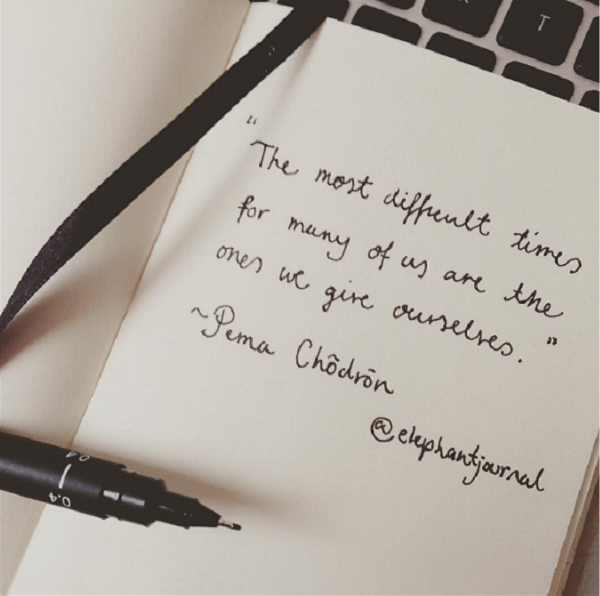
“Whether we are religious or a materialist, a believer or an atheist, it is crucial that you know how your own mind works.” ~Lama Yeshe
~
Earlier this year, I wrote about why Buddhism is a way of life, rather than a religion.
I was lucky enough to make my way to India around that time to study Buddhism. The teachings of Lama Yeshe have helped me develop a clearer understanding of why Buddhism is a way of life.
As I entered the gompa on day one, I saw these words above the door:
“O Bhikkhus and the wise! Just as gold is tested by burning cutting and rubbing it, likewise, examine my words thoroughly and only then accept them, not merely out of respect for me.”
It was compelling to see 100 other students from all over the world attending the course to study Buddhism—and themselves. Christians, Muslims, Jews and Hindus all sat in the gompa. We were all raised with different religious beliefs; however, we had one thing in common: investigating the basic purpose of Buddhism.
I felt an unparalleled joy during this investigation, as Buddhism has offered me empirical evidence that supports my own life experiences. Lama Yeshe says that Buddhism never encourages its followers to purely believe in the Buddha. He isn’t the prime emphasis—the teachings are.
Many people don’t understand that concept and try to delineate what the Buddha said. But Buddhism isn’t about words: it’s about applying the teachings.
Now you might be saying to yourself, “But all religions are about applying the teachings. What makes Buddhism any different?” It’s true. All religions preach about love, peace, and compassion. But Buddhism presents the methods with clarification on how to apply them.
In order to apply the teachings correctly, Buddhists focus on understanding human psychology and how our minds work.
For them, religion means understanding our own psyche—studying the Dharma is studying “you.” You are the main focus. Instead of delving into the history of Buddhism, Buddhism focuses on delving into ourselves.
The purpose of Buddhism is to study the mind.
Lama Yeshe states that Buddhism is not a religion from the Lamas’ point of view as the Buddhist teachings are more in the realm of philosophy, science, and psychology.
Before digging deeper into Buddhism, this notion baffled me. I wasn’t sure why I needed to study my mind. I felt mentally healthy and stable. The cause of my problems were people and circumstances, never “me.”
But I kept finding myself unable to solve my own problems. I learned that my problems remained, not because of my religion, other people, or the ordeals in my life, but because the problem was within me.
All mental suffering comes from whatever attitude we attach to the phenomena in our lives. If we don’t know the nature of our own attachment, how can we get rid of our problems?
Buddhism emphasizes the necessity of helping others and being compassionate towards all living beings. I reckon that Buddhists advise us to eradicate our own attachment first so we are better able to eradicate the attachment of others. In other words, how can we apply the teachings of our religion if we don’t start with understanding our own issues first?
We can’t feel equanimity with others and help them when our mind is unhealthy.
Studying Buddhism has helped me realize that I am the one responsible for my thoughts, emotions, and actions. Once we take full responsibility for how we feel and think, and work on purifying our minds, then we can start loving others.
Usually, we start from the outside, then look in. But in the Buddhist way of life, we must look inward to accomplish outward success.
~
Source: Becoming your Own Therapist, Lama Yeshe.
Name: Elyane Youssef
Image: Instagram
Editor: Nicole Cameron






Read 0 comments and reply